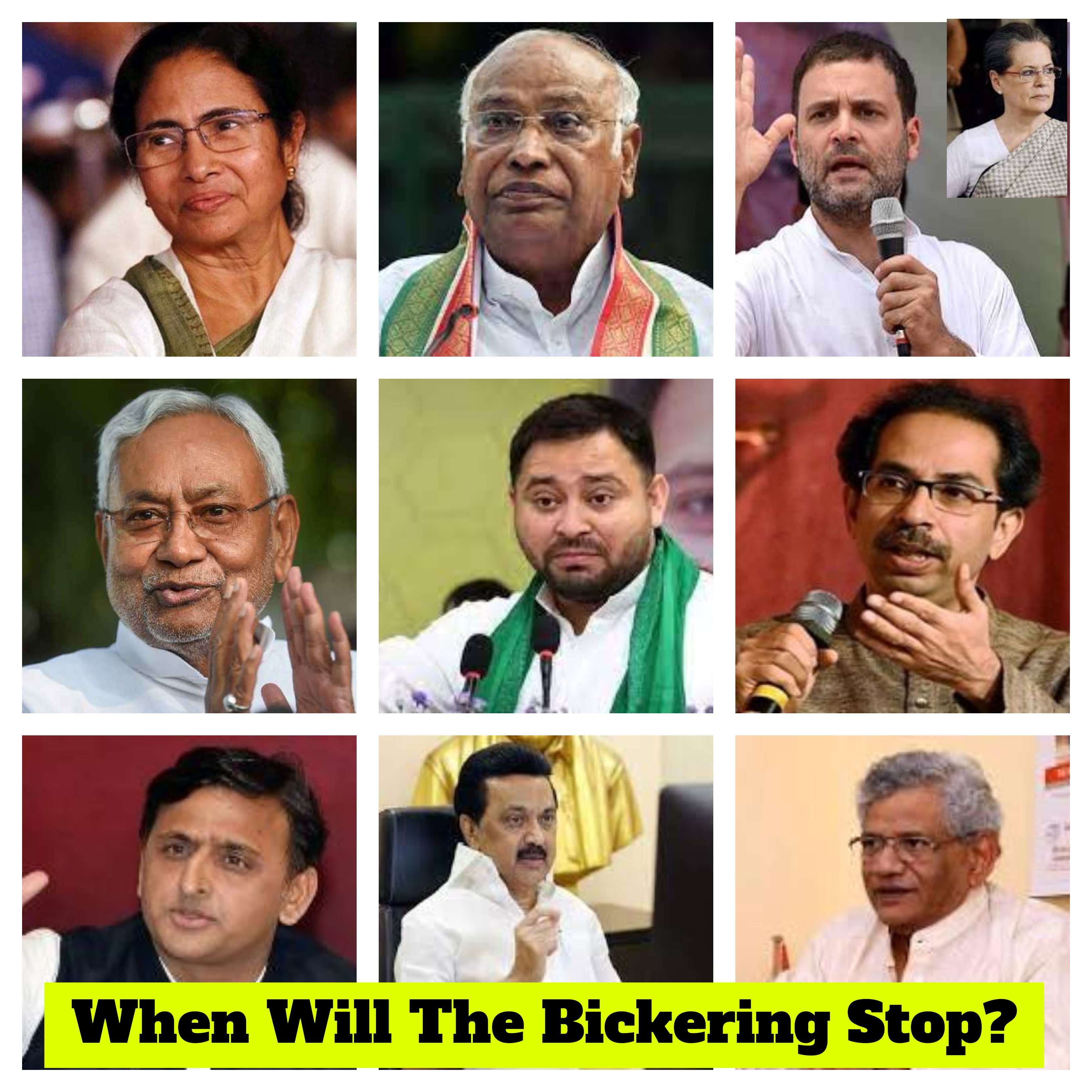

By Sunil Garodia
First publised on 2024-01-10 09:57:59
The fault lines are clearly visible as the I.N.D.I.A bloc parties try to come to an understanding over seat-sharing for the 2024 Lok Sabha elections. Presenting a united face before the electorate, which will simultaneously project them as a viable alternative to the BJP-led NDA, is the main requisite for any opposition alliance. For this, ensuring one-to-one contests against the incumbent in a majority of the seats, having a strong face to lead the alliance and having a counter-narrative are the main requirements. Sadly, despite holding several meetings of the top leadership of the alliance parties, the I.N.D.I.A bloc has not built a consensus on any of the main issues. In fact, it is the opposite. Leaders of most parties are taking different views and are skewing the pitch. It has failed to appoint a national convener although the buzz before the latest round of talks was that senior JD(U) leader and Bihar chief minister Nitish Kumar would be given the charge. The chairperson of the alliance has also not been decided upon.
The scenario as it is unfolding is one of regional parties (although some of them fancy themselves as national parties) versus the Congress. Even the Congress allies, like the JD(U) in Bihar, are protesting against the strong-arm tactics and unreasonable demands of the grand old party. The Congress, on the other hand, has indicated that it will focus on all Lok Sabha seats, belying the hope that it will focus mainly on states (like Rajasthan, Gujarat, Madhya Pradesh, Karnataka, Chhattisgarh, Himachal, Haryana and Assam) where it is in direct contest with the BJP and where regional parties have little or no influence. For the other states, it will either contest in seats it has won or is traditionally strong in. But the Congress is facing problems with the AAP in Delhi and Punjab and to some extent in Gujarat, from JD(U) in Bihar, the CPM in Kerala and TMC in Bengal. There are also problems within the alliance between the Congress, the NCP and the Shiv Sena (Uddhav) in Maharashtra (although latest reports suggest that there has been a broad agreement over most of the seats). In Bengal, the TMC has said that it will not 'compromise with the CPM'. At this rate, it seems that there might be an understanding on some seats while a majority of the seats will still have multi-cornered contests, defeating the purpose of having an alliance.
Although it is now clear that apart from highlighting the development projects, welfare schemes and Covid management under its rule, the BJP-led NDA will project the abolition of the triple talaq, the abrogation of Article 370 and the building of the Ram Mandir at Ayodhya as its major campaign issues in 2024. It will drill in the minds of the voters that it has delivered on the three main issues in its manifesto. But the opposition has not come out with a counter-narrative till now although less than 6 months remain for the elections. While Mamata Banerjee dismisses the pran prathistha ceremony in Ayodhya on January 22 as a pre-poll gimmick and the Congress has said today that it will not attend the programme as it is an "RSS-BJP event", the other parties are silent on what could be a game changer for the BJP as it might consolidate Hindu votes. Time is running out for the opposition. If they cannot get their act together in the next month or so, they will hand the NDA another easy victory in 2024.











